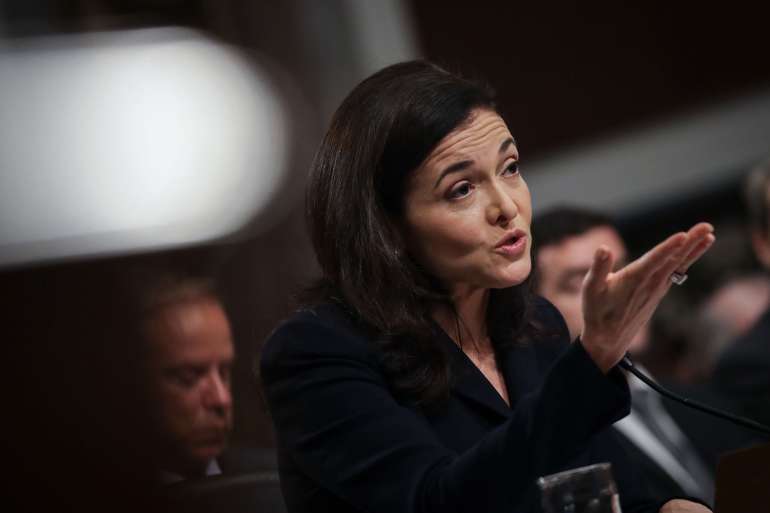Sheryl Sandberg gives ACLU $3M for abortion rights fight

“This is no longer just at the federal level — this is state by state, ballot initiative by ballot initiative, judge by judge,” Sandberg told POLITICO. “This is now a political fight that is going to take everyone. So many people care about this issue and we need all of those people to become much, much, much more active.”
Sandberg, who has a history of donating to Democratic powerbrokers and political action committees that work to elect abortion-rights supporters, said this latest donation begins a new chapter as she looks to take a more active role in politics.
“This is the beginning of a very deep partnership” with the ACLU and other advocacy groups, she said.
The best-selling author and former top aide to Clinton administration Treasury Secretary Larry Summers has also said she plans to focus on philanthropic work in her post-Meta career, “given how critical this moment is for women.”
During her final years helming Facebook, Sandberg came under fire for the proliferation of misinformation and disinformation on the platform on her watch — including an explosion of false and misleading posts about methods of abortion and their risks. She also irked some Democratic lawmakers when she downplayed Facebook’s role in the Jan. 6. riots.
Asked what she could have done differently and what Meta should do going forward, Sandberg declined to comment, citing her role on the company’s board and arguing it’s not “appropriate” for her to comment on its policies.
Romero added that putting out more accurate information about both the medical and legal facets of abortion can help combat the misinformation that remains rampant on social media, including Facebook, and said the ACLU will make a significant push on that front later this fall with the help of Sandberg’s donation.
“We’ll provide a much more detailed map of where people can get advice and assistance,” he said. “It will include websites, referrals, accessible legal documents, know-your-rights materials — a real concerted effort to correct the record and inform the public.”
The ACLU said the funding will also help the group ramp up its work on down-ballot races that often fly under the radar. The group is focused in particular on state legislative, district attorney and state supreme court races, including those in North Carolina, Ohio, Kansas, Arizona, Tennessee and Nevada. They are also campaigning for pro-abortion rights ballot measures in Vermont and Michigan and against an anti-abortion measure in Kentucky, among other priorities.
“We need to hold every single elected official accountable,” Romero said. “What are you doing to protect abortion rights? We’re not going to accept a mumbling answer to a very clear question.”
The state supreme court races, the ACLU said, are a particular focus, because voters tend to be under informed about the ideology of the candidates and because the judges elected could determine the outcome of many of the group’s lawsuits currently underway.
Sandberg said she decided to become more involved when the Supreme Court ruling overturning Roe v. Wade coincided with her decision to leave her longtime Silicon Valley position. While she has previously donated to progressive causes including abortion rights, including a $1 million donation to Planned Parenthood soon after President Donald Trump took office in 2017, she said a yearslong relationship with the ACLU steered her in its direction.
Sandberg has been a persistent critic of the Supreme Court’s ruling since POLITICO published the draft opinion in May, calling the decision a “huge setback” in a Facebook post and expanding in an interview on Thursday about what the mounting restrictions on the procedure could mean for women.
“My mom has talked to me about what it was like to be in college in this country before abortion was legal,” she told POLITICO. “She had a friend who got pregnant and needed an abortion. She was from a family that could send her to another country where she had a safe and legal abortion. But there were other people in the school she went to who were not able to access that and had everything from a botched, unsafe, illegal kind to the self-induced kind. People died and people had very long-term health consequences. I cannot believe that I’m going to send my daughters to college with fewer rights than I had.”
Three months after the fall of Roe v. Wade, more than a dozen states have enacted near-total bans on abortions, with varying exemptions for cases of rape, incest and life endangerment. While lawsuits brought by the ACLU and other advocacy groups have recently halted enforcement in a handful of places, including Ohio and Indiana, the list of states where abortion is virtually inaccessible continues to grow. And many GOP-controlled state legislatures where infighting this year over how sweeping restrictions on the procedure should be scuttled attempts to pass new laws are expected to try again when they reconvene in January.
Organizations across the political spectrum are also pouring unprecedented resources into campaigns for the candidates and ballot initiatives that will determine the future of abortion rights.
NARAL, Planned Parenthood Action Fund and EMILY’s List recently announced they will spend a combined $150 million on the 2022 midterms “to ensure the election of reproductive freedom champions up and down the ballot.”
And one of the leading anti-abortion groups, SBA Pro-Life America, plans to spend at least $78 million — with other state and national conservative groups also buying ads, sending mailers and deploying staff to knock on doors.
“The Dobbs decision has woken up a lot of people — that’s the story of the election,” said Julie Sweet, the director of the ACLU’s Liberty Division that spearheads its abortion rights work. “So we have to be there to help people cast an informed vote.”